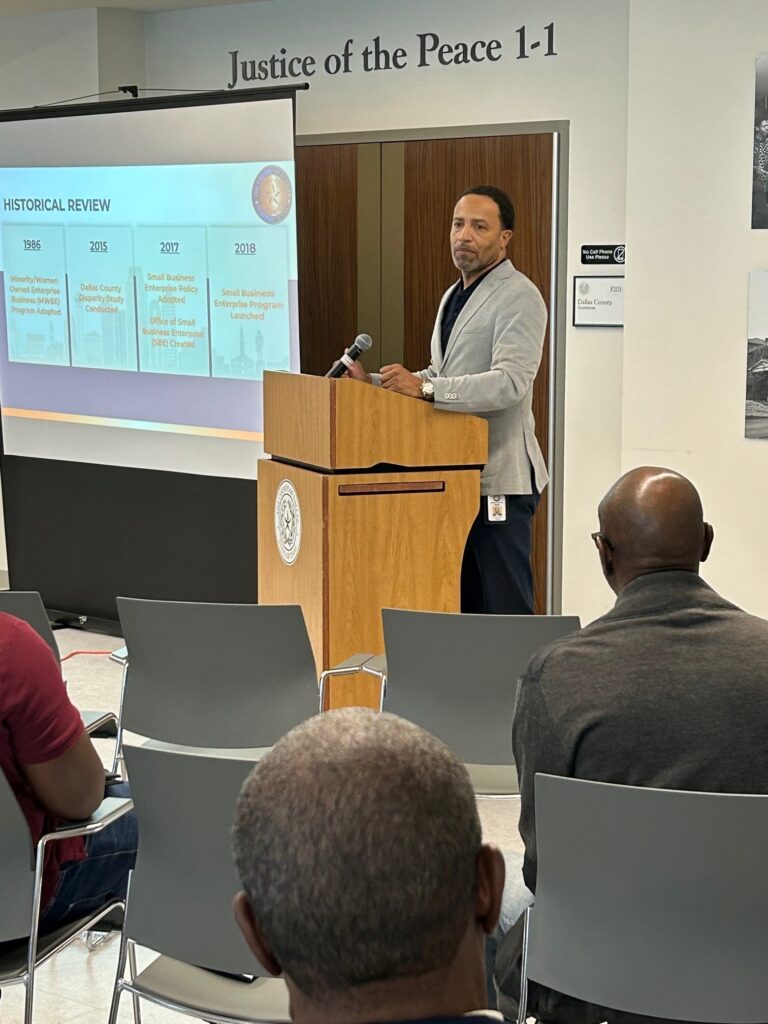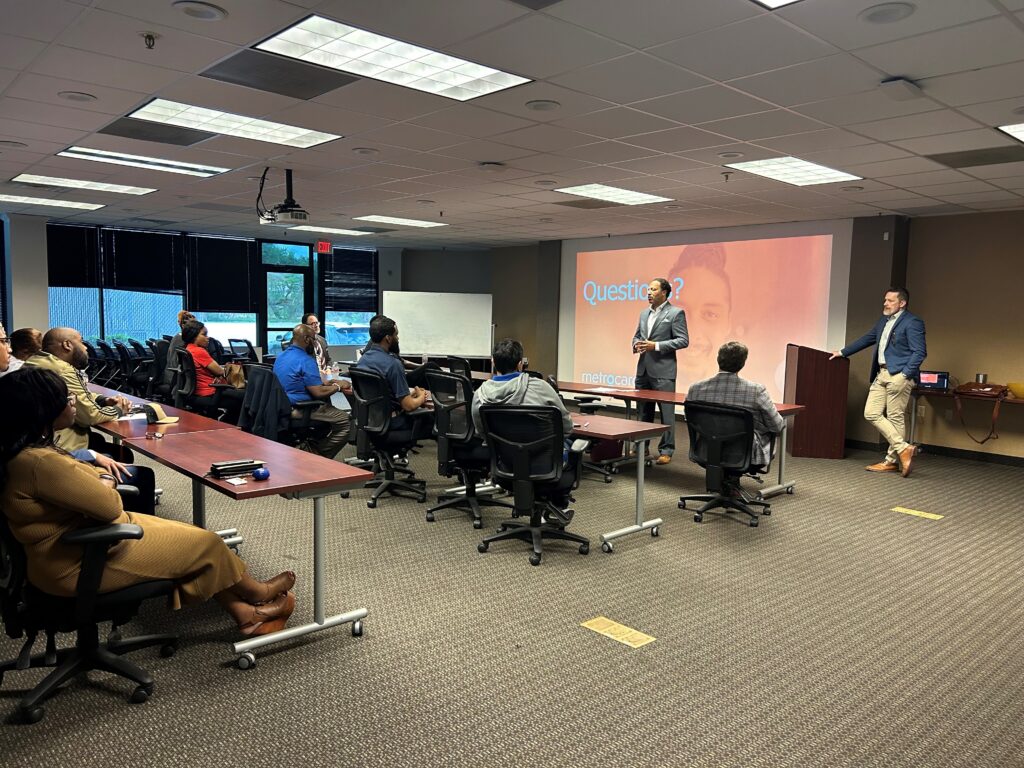
DALLAS — Dallas County is committed to increasing opportunities for small businesses and continuing to provide economic opportunities to the Dallas business community.
The Dallas County Commissioners Court established its Small Business Enterprise Program (SBE Program) for the purpose of promoting an inclusive supply chain through its commitment to the utilization of small businesses. In addition, Dallas County aspires to increase the participation of small businesses in all aspects of contracting with the county to include its Prime Supplier awards through contracts with certified Small Business Enterprises (SBE), directly or indirectly through contracting, subcontracting, and/or other procurement activities.
The county’s mission is to exhaust every effort to the greatest extent possible to ensure the involvement of qualified SBEs in the county’s procurement of goods, services, commodities, equipment and construction.
“They provide those critical business services on our various projects, whether it’s through our facilities, through our public works, HHS, or IT, just to name a few,” Crawford explained. “We recognize the value that they bring and the true partnership of working, not only with the county—the ninth largest county in the country, mind you—but also contributing to the great business climate, economy and growth that we have here in Texas.”
Office of Small Business Enterprise Program Goals:
- To utilize eligible small businesses to enhance the capacity of those small businesses.
- To increase the number of competitively awarded contracts to small businesses.
- To promote the use of small businesses in Dallas County contract and subcontract opportunities.
- To ensure nondiscrimination in the award and administration of Dallas County contracts and procurements to SBEs.
Crawford, who has a proven background in supplier inclusion, supply chain management, strategic sourcing and procurement, workforce diversity, entrepreneurship, and community engagement, said he feels convicted in working with small and diverse businesses because he comes from a family where he witnessed entrepreneurship.
“This is not a job or career… I’m on a mission. My grandfather was an economist for the U.S. Bureau of Labor and Statistics, and I was also an entrepreneur, so I witnessed first-hand the value that these businesses bring to our economy because I’ve lived it,” Crawford said. “I take personal pride in finding companies and advocating for them, ensuring that they have access to opportunities, can compete, win business either as Tier 1’s or Tier 2’s, and then grow from a sustainable standpoint. Through hands-on advocacy, training and development, and outreach, you quickly see the impacts of these efforts through their expansion in all facets of their business, such as their increased capacity, their revenue growth, market growth and ability to scale up. It’s very rewarding on both a personal and professional level.”
The county has contributed to increasing opportunities for small businesses through awarding first and second-tier contracts through subcontracting.

“We ensure that they first participate in the bid process, so that’s the first step: ensuring that they have visibility and access to those opportunities. Secondly, once they compete and they meet or exceed those requirements and are awarded business, the county in turn ensures that we utilize those firms and that it’s sustainable work, not just a one-time opportunity, but we want to see them grow holistically and be able to provide those products or services, which benefit our constituents, our residents, our employees and our patients at our county hospitals,” Crawford explained. “Even in our medical, juvenile and jail systems, we have firms that assist us with providing those critical services to meet the needs of the community and client organizations.”
The county has increased the participation of small businesses in all aspects of contracting and awards through education, training, and increasing the scale and impacts of its outreach activities.
“Dallas County’s program has been in existence since the 1980s and since I joined the county almost over three years ago, I made a personal commitment and concentrated focus to engage with not only certified suppliers but also businesses in general to conduct ‘How to Do Business’ seminars with small and diverse-owned businesses that wanted to know more about the county, including how to improve their chances for bid opportunities, sharing best practices, also explaining the procurement process to potential vendors and suppliers, thereby increasing their chances for success,” Crawford said. “This is an exciting time for us at Dallas County, as our program is expanding. We also have capacity-building efforts and initiatives to provide financial resources, improve their operational efficiencies, and increase the quality of their bid submissions. We also look at opportunities to bring them to the table to meet the decision-makers, which include our key internal clients and purchasing teams.”
SBE Certification Requirements:
Must be certified as an SBE by one of the following county approved entities:
Dallas/Fort Worth Minority Supplier Development Council (DFWMSDC)-SBE
www.dfwmsdc.com
(214) 630-0747
North Central Texas Regional Certification Agency (NCTRCA)-SBE
(817) 640-0606
Women’s Business Council-Southwest (WBCS)-SBE
(817) 299-0566
At the time of the proposal/bid submission, other certifications are not recognized per the SBE program requirements, however, they will not prevent you from doing business with Dallas County.
- Must be 51% or more owned and controlled.
- Firm must be organized as a for-profit business.
- Must also perform a commercially useful function on the project.
- Must have a local presence in Dallas County’s Metropolitan Statistical Area (MSA). The MSA includes the following counties: Dallas, Tarrant, Denton and Collin.
- HUB, DBE and TxDOT certifications are accepted for those applicable Dallas County projects.
- Dallas County also accepts HUB and DBE certifications for the applicable state and federally-funded projects within Dallas County.
For more information on new opportunities for small businesses in Dallas County, go to www.dallascounty.org/sbe.











